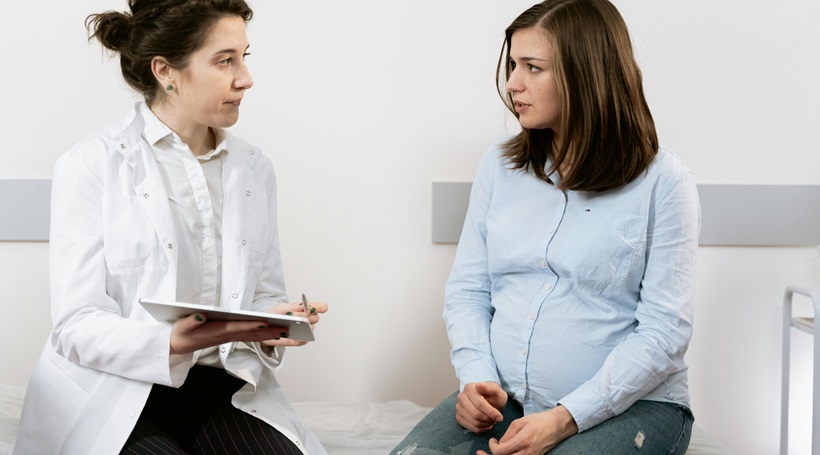Last Updated on January 1, 2025
Visiting an OB-GYN for the first time can be a significant milestone. Understanding what to expect during this initial visit is essential to ensure it is as informative and comfortable as possible. This appointment addresses current health issues and sets a foundation for long-term reproductive health.
Read on to learn what you should expect during your first OB-GYN visit.
Preparing for Your First Visit
The first visit to an OB-GYN typically involves a detailed discussion about your medical history, menstrual cycle, sexual activity, and any concerns you may have regarding your reproductive health. Before the appointment, preparing a list of questions or topics you want to discuss with your doctor is beneficial. This ensures that all your concerns are addressed during the visit.
It’s also important to schedule your appointment when you are not menstruating, although most procedures can still be performed if necessary. But can you still go to the gynecologist on your period? If you need further guidance, it’s best to consider reading about when you should ideally schedule this appointment to gain more valuable insights.
What Happens During the Visit?
During your first OB-GYN visit, expect a thorough review of your medical history, a physical examination, and a detailed pelvic exam. The goal is to assess your reproductive health comprehensively, address any concerns, and discuss suitable birth control methods.
Here’s what happens during the visit:
Medical History Review
The first part of the visit will likely involve filling out forms regarding your medical and sexual history. This includes information about any medications you are taking, your menstrual cycle, any past surgeries, and your family health history. It’s essential to be honest and thorough to help your healthcare provider understand your health background and potential risks.
Physical Examination
After discussing your medical history, a general physical exam will be conducted. This exam includes measuring your blood pressure, weight, and height. It may also include a clinical breast exam to check for any lumps or abnormalities.
Pelvic Exam
For many, the pelvic exam is the most anticipated part of the first OB-GYN visit. This exam helps the doctor assess the health of your reproductive organs. The pelvic exam typically includes three parts: an external genital exam, a speculum exam, and a bimanual exam.
While the thought of a pelvic exam may cause anxiety, it is generally quick and causes minimal discomfort. Your doctor will explain each step of the process during the examination, and you can ask them to stop at any time if you feel uncomfortable.
Pap Smear
Depending on your age and health history, a Pap smear might be performed during the pelvic exam. This test involves collecting cells from your cervix to check for abnormalities that could indicate cervical cancer or other conditions. The Centers for Disease Control and Prevention recommends that individuals start getting Pap smears at the age of 21.
Discussing Birth Control Options
Discussing birth control options is a critical component of your first OB-GYN visit. Your doctor will introduce a variety of contraceptive methods, such as oral contraceptives, contraceptive patches, vaginal rings, intrauterine devices (IUDs), and possibly implantable devices.
Each method has its benefits, risks, and effectiveness rates, which your doctor will explain. They will also consider your health history, such as any pre-existing conditions that might influence the suitability of certain contraceptives, as well as your lifestyle preferences and future family planning goals. This personalized approach ensures you can make an informed decision about which birth control method will best suit your needs.
Addressing Menstrual Concerns
Menstrual concerns are a common topic during the first OB-GYN visit. Whether you’re experiencing irregular periods, severe menstrual pain (dysmenorrhea), heavy bleeding (menorrhagia), or other menstrual irregularities, your doctor can help. The discussion might include diagnostic testing to determine the cause of these symptoms, such as hormonal imbalances or underlying health conditions.
Treatment options can range from hormonal contraceptives, which can regulate your cycle and reduce pain, to lifestyle adjustments like diet and exercise modifications. Your doctor will tailor the treatment plan to address your symptoms and improve your menstrual health.
Q&A Session
At the end of your first OB-GYN visit, you can engage in a Q&A session with your doctor. This part of the visit is designed to ensure that you leave with no unanswered questions regarding your reproductive health, the examinations conducted, or any discussed treatments.
It’s also the perfect time to address any lingering doubts or seek clarification on topics such as sexual health, symptom management, or even general wellness. This session is crucial for building trust and communication with your OB-GYN, ensuring you feel confident and informed about your health decisions.
Follow-Up and Future Visits
Your initial OB-GYN visit will conclude with a discussion on the outcomes of your exams and the plan moving forward. Depending on what was discovered during your visit, your doctor might recommend follow-up tests to investigate any issues further. They will also advise when to schedule your next appointment, including routine screenings like mammograms or follow-ups for specific concerns.
This plan is essential for ongoing health monitoring and preventive care. It allows both you and your doctor to monitor any changes in your health over time. This proactive approach helps in early detection and treatment of potential health issues, securing your well-being in the long run.
Conclusion
The first OB-GYN visit is a proactive step toward maintaining your reproductive health. It can help establish a comfortable relationship with your OB-GYN, ensuring you feel supported in managing your health as you age. Remember, this visit is your opportunity to address any health concerns and to become informed about your body and its needs. With preparation and understanding of what to expect, you can make this visit a positive and empowering experience.

